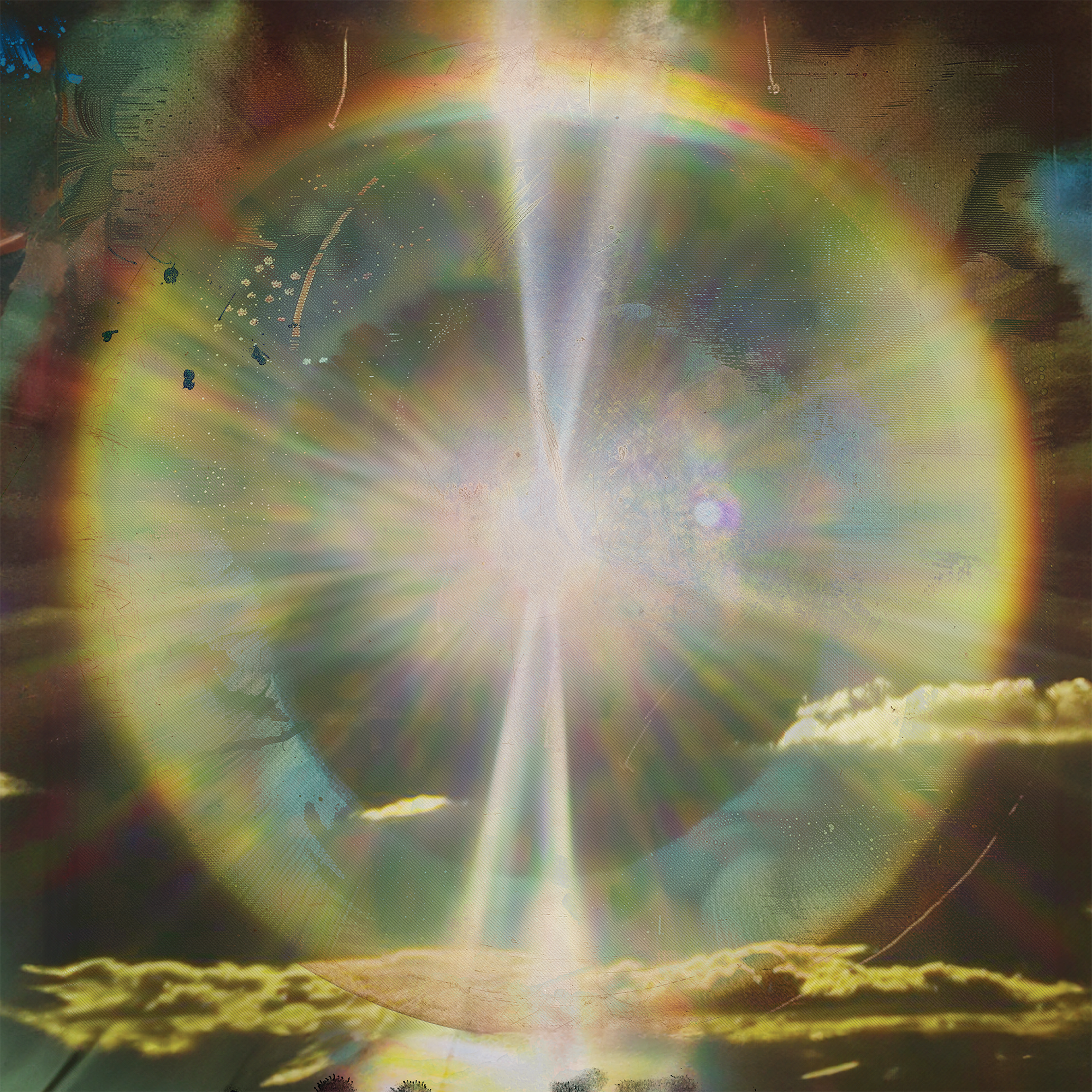When the world's chatter is hushed to a whisper and emptiness replaces clutter, time falls away completely, exposing a vast, open canvas for the imagination fill with reflection, contemplation and abstraction. On their first collaborative album, released via Caterina Barbieri's light-years label, Grand River and Abul Mogard gaze longingly into the abyss, capturing atemporality, splendour and tranquility with confident, impressionistic sonic strokes. Dynamic and poignant, 'In uno spazio immenso' balances on a knife-edge between booming, operatic grandeur and soft- focus simplicity, casting as much light on the subtle outlines and illusory rhythms as it does its dense, almost overpowering textures.
Berlin-based Dutch-Italian composer and sound designer Aimée Portioli, aka Grand River, has been evolving her unique musical language since she released 'Crescente' on Donato Dozzy and Neel's Spazio Disponibile imprint in 2017. A trained linguist, she uses her instrumentation and advanced processes to challenge cultural perceptions, portraying emotions and moods rather than fixed, visual images. Abul Mogard meanwhile is just one of veteran Italian producer Guido Zen's many aliases, and over a series of acclaimed albums for labels like Ecstatic, Houndstooth and VCO, he's muddled fiction with stark reality, shaking kosmische synth fantasies into post- industrial ambience and blissful shoegaze memories.
Working together, Portioli and Zen find unity in intensity, freezing their discrete concepts and techniques into a glacial emotional expanse. On opening track 'Dissolvi', they peer out hand-in- hand over a colossal, reverberant landscape, conducting booming basses, evaporating voices and brassy synthetic swells that pick out the formidable topography. Beatless but not without rhythm, the composition moves at its own pace, twisting time and form to suggest the duo's obliquely hypnagogic narrative. And with each action, there's inevitably a reaction: 'Frantumi di luce' is a hushed refraction that simmers with intrigue, decorating its subtle, flickering pulse and dazzling rays of thoughtful ambience, while 'Altrove, lontano' transports listeners into a different locale entirely, cloistering its meditative mood with angelic choral echoes and evocative strings.
The album's most devastating track, 'Archi' is an apex of sorts, a collision of widescreen electroid oscillations and overdriven drones that careens into a grinding industrial beat, and 'Sulle barcane' is its serene inverse, a breathy exhalation fashioned from cryptic environmental recordings, static washes and weightless pads. But 'In uno spazio immenso' isn't a story about Portioli and Zen, exactly, it's an invitation to listen to an inner voice that's different for each listener. Space is whatever we want it to be, and how we decide to fill it is a choice that's dependent on the depth of the imagination.
Berlin-based Dutch-Italian composer and sound designer Aimée Portioli, aka Grand River, has been evolving her unique musical language since she released 'Crescente' on Donato Dozzy and Neel's Spazio Disponibile imprint in 2017. A trained linguist, she uses her instrumentation and advanced processes to challenge cultural perceptions, portraying emotions and moods rather than fixed, visual images. Abul Mogard meanwhile is just one of veteran Italian producer Guido Zen's many aliases, and over a series of acclaimed albums for labels like Ecstatic, Houndstooth and VCO, he's muddled fiction with stark reality, shaking kosmische synth fantasies into post- industrial ambience and blissful shoegaze memories.
Working together, Portioli and Zen find unity in intensity, freezing their discrete concepts and techniques into a glacial emotional expanse. On opening track 'Dissolvi', they peer out hand-in- hand over a colossal, reverberant landscape, conducting booming basses, evaporating voices and brassy synthetic swells that pick out the formidable topography. Beatless but not without rhythm, the composition moves at its own pace, twisting time and form to suggest the duo's obliquely hypnagogic narrative. And with each action, there's inevitably a reaction: 'Frantumi di luce' is a hushed refraction that simmers with intrigue, decorating its subtle, flickering pulse and dazzling rays of thoughtful ambience, while 'Altrove, lontano' transports listeners into a different locale entirely, cloistering its meditative mood with angelic choral echoes and evocative strings.
The album's most devastating track, 'Archi' is an apex of sorts, a collision of widescreen electroid oscillations and overdriven drones that careens into a grinding industrial beat, and 'Sulle barcane' is its serene inverse, a breathy exhalation fashioned from cryptic environmental recordings, static washes and weightless pads. But 'In uno spazio immenso' isn't a story about Portioli and Zen, exactly, it's an invitation to listen to an inner voice that's different for each listener. Space is whatever we want it to be, and how we decide to fill it is a choice that's dependent on the depth of the imagination.






